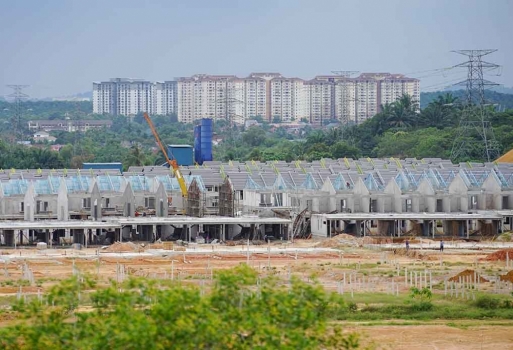A price floor for homes given the declining supply?

Juwai IQI warned that the 9 per cent loss in newly planned residential supply and the 47 per cent drop in completed housing may soon lead to a price floor for residential properties in Malaysia.
The firm's head of Bumiputera segment Muhazrol Muhamad said that the new home supply will be sufficiently reduced to prevent further price decreases.
"As agents, we still see sufficient activity and buyer demand to keep us busy. We have more concern about supply. The pipeline of new supply is shrinking. Prices last quarter fell by 2.2 per cent, but we believe the shrinking pipeline will put a floor under future price falls.
"Prices drop when there are more properties than buyers, and developers are shifting the equation in favour of supply by reducing the flow of new supply onto the market. That's one thing we are hearing from buyers. They want to buy now while prices are lower because they don't know how long the opportunity will last. They don't want to pay more later by delaying their purchase," he said in a statement.
Inflation, in Muhazrol's opinion, maybe the main reason why developers choose not to start new initiatives.
Developers, he claimed, may protect themselves against the risk of inflation by keeping onto their projects and selling them at a profit in the future.
He said that while the pipeline is getting smaller and the overhang is shrinking, the supply is still adequate today.
However, he said that dwelling completions are dropping quickly.
Comparing the first quarter to the fourth quarter of 2021, completion fell by 47 per cent, from 25,074 to only 13,284.
The availability of newly planned homes have also decreased, he said.
"Over the past three quarters, planned new supply fell 36 per cent from 26,392 units to just 16,774. That's a significant change from the previous trend in which new planned supply increased steadily, quarter after quarter. Compared to Q4 of 2021, the new planned supply is down 9 per cent.
"Besides reducing supply, developers are also, in some cases giving significant discounts today. As soon as they clear the units they hope to sell in the short term, you can expect these discounts to disappear," Muhazrol said.
On interest rates, Muhazrol believes it will have no significant impact on Malaysia.
"First, inflation in Malaysia is lower than in many other countries, so our interest rates don't have to rise as far to get inflation under control. Second, even though the overnight policy rate has increased slightly to 2.25 per cent, that is still well below the historical average. Rates today are very close to historic lows, which limits any potential impact on the real estate market," he said.









